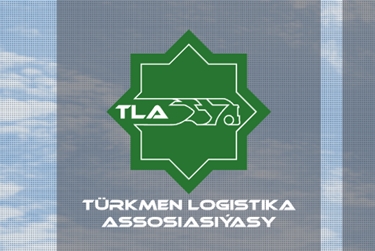Turkmenistan has recently joined the Basic Multilateral Agreement on International Transport for the Development of the Europe–Caucasus–Asia Corridor, which is the foundation legal instrument for the TRACECA corridor.
The editorial office of the newspaper “Neutral Turkmenistan” held a round table with the Association “Turkmen Logistics” to discuss the importance of the Europe–Caucasus–Asia (TRACECA) transport corridor for expanding transit opportunities and developing a competitive and integrated transport system in Turkmenistan.
The role of the Europe–Caucasus–Asia International Corridor in the global transport architecture
Rustam Seyidov, Deputy Chairman of the Association “Turkmen Logistics” quoted the President of Turkmenistan Serdar Berdimuhamedov, who said that Turkmenistan actively participating in the construction of transport and transit and energy corridors North-South, East–West connecting Asia and Europe, in the next decade will turn into one of the main countries in Eurasia.
The Europe–Caucasus–Asia transport corridor is a multimodal system of land and sea routes providing international transportation between Europe and Asia through the Black Sea, the countries of the South Caucasus, the Caspian Sea and the countries of Central Asia. This route originates in the countries of Eastern Europe (Bulgaria, Moldova, Romania, Ukraine), crosses Turkey, then follows through the Black Sea to ports in Georgia, then uses the transport network of the countries of the South Caucasus, as well as Iran, told Seyidov.
From Azerbaijan, through the Caspian ferry crossings, the route goes to the railway networks of Turkmenistan and Kazakhstan, which are connected to destinations in Uzbekistan, Kyrgyzstan, Tajikistan and reach the borders with China and Afghanistan.
The Central Asian countries have both land and marine connectivity with Iran. The Europe–Caucasus–Asia transport corridor is economically extremely beneficial for all countries, as it contributes not only to the realization of their transit potential, but also affects the activation of regional and continental trade ties, Seyidov noted.
Turkmenistan is an active partner of the TRACECA Program
Despite the fact that Turkmenistan was not a signatory to the Basic Multilateral Agreement on International Transport for the Development of the Europe–Caucasus–Asia corridor, the country has become a significant partner of the TRACECA program.
Sapa Gurbanberdiyev, a leading specialist of the Economic Society “Turkmen Logistics Ulgamy” recalled that several projects related to technical and organizational issues of cargo transportation were implemented with the participation of Turkmenistan as a beneficiary of the TRACECA Program.
For example, on the sidelines of the International Conference of Ministers of Transport of Landlocked Developing Countries, held on the initiative of Turkmenistan in August 2022, a pilot project of a Global Transit Document was launched, developed by the Permanent Secretariat of the Intergovernmental Commission of the International Transport Corridor Europe–Caucasus–Asia (TRACECA) in cooperation with stakeholders.
Turkmenistan also joined the working group on the development of a single multimodal document aimed at the maximum simplification of international transit traffic as an observer.
As a member of the TRACECA Program, without even joining the Basic Multilateral Agreement on the Development of the Europe–Caucasus–Asia Transport corridor, Turkmenistan supported projects aimed at harmonizing regulatory framework, improving tariff policy, institutional strengthening and development of the transport infrastructure of this corridor, the formation of logistics hubs on its territory.
Developed port infrastructure, modern container service for the transportation of goods across the Caspian Sea drives the growth of road and rail container traffic between Turkmenistan and TRACECA countries, said Sapa Gurbanberdiev.
What role does the Basic Multilateral Agreement on International Transport for the Development of the Europe–Caucasus–Asia Corridor play for the participating countries?
Rustam Seyidov believes that this document makes it possible to more effectively realize the economic potential of the countries, gives impetus to the development of their transport sector.
TRACECA member countries also have real prospects for strengthening their role as transit countries. New transport infrastructure is being built along the entire route of the TRACECA corridor, while the existing one is being modernized. A corresponding unified legal framework is being developed and uniform tariff rules are being determined. TRACECA countries are training personnel for the professional implementation of international transportation.
The International Seaport of Turkmenbashi provides an undeniable advantage and prospects for expanding the role of Turkmenistan in regional and transit trade, including through the TRACECA corridor. Turkmenistan provides access to the Caspian Sea for landlocked countries.
Seyidov also stressed the fact that Turkmenistan’s transport policy opens up wide opportunities for private transport companies.
“The main goal of domestic companies is to become competitive in the cargo transportation market. In this regard, the role of the Association “Turkmen Logistics” is increasing, which represents the interests of the country’s transport and logistics enterprises at the international level,” he said.///nCa, 5 October 2023
#Turkmenistan, #transport, #connectivity, #logistics, #TRACECA
